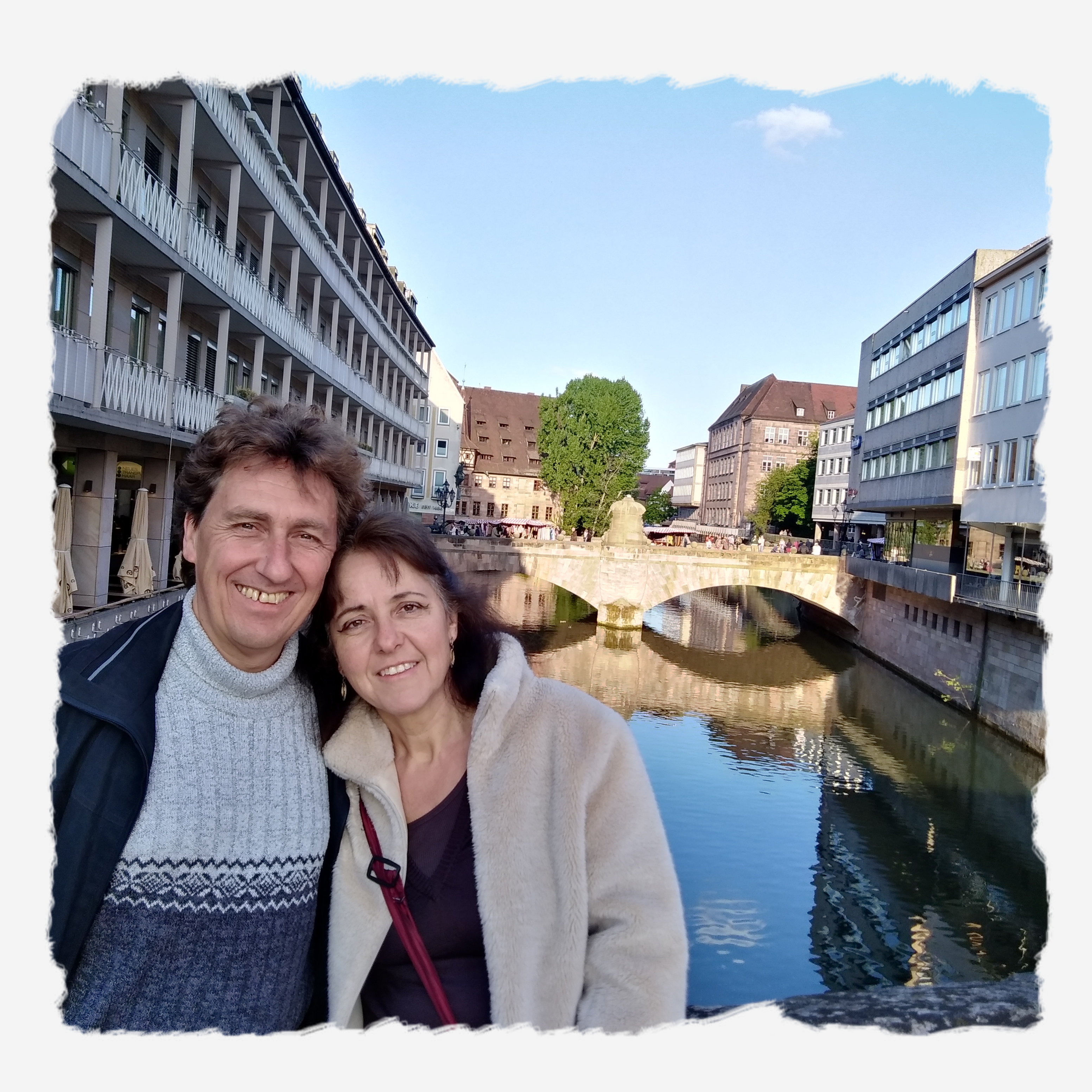In every relationship, communication serves as the foundation for understanding, trust, and connection
Communication is the lifeblood of relationships. It's the bridge that connects individuals, fostering understanding, intimacy, and trust.
But what exactly is communication in a relationship?
It's more than just words. It's about expressing feelings, sharing thoughts, and understanding each other's perspectives.
So, how does communication affect relationships?
The impact is profound. Communication shapes the health, satisfaction, and longevity of relationships. It's the key to resolving conflicts, navigating changes, and building a strong emotional connection.
In this article, we'll delve into the importance of communication in relationships, offering insights and practical tips to enhance your interpersonal connections.

Communication in a relationship involves more than just exchanging words. It's about sharing feelings, thoughts, and desires, allowing both partners to connect on a deeper level.
To define communication in a relationship accurately, consider both verbal and nonverbal elements. Words convey messages, but tone of voice, facial expressions, and body language enrich understanding. Together, these elements foster mutual respect and empathy, essential for any thriving relationship.
Communication is key in any relationship because it builds trust. When partners communicate openly, they feel safe and secure. Trust lays the foundation for lasting connections.
Communication also helps partners understand each other’s needs and expectations. Misunderstandings are minimized, and both partners feel valued. This mutual understanding enhances emotional intimacy and closeness.
Furthermore, effective communication fosters a sense of partnership. It allows partners to work together to solve problems. When partners communicate well, they are more likely to support each other’s personal growth and dreams.
Honest communication paves the way to resolving conflicts. It allows partners to express their feelings openly without fear. This openness can prevent misunderstandings and reduce tension.
When partners communicate honestly, they can address issues at their core. This prevents small disagreements from escalating into major problems. Honest dialogue fosters patience and empathy, essential for conflict resolution.
Moreover, honest communication reinforces respect between partners. It acknowledges that each perspective is valid and important. By prioritizing honesty, couples can resolve conflicts constructively and strengthen their relationship in the process.
Statistics reveal much about the role of communication in relationships. Research shows that couples who communicate effectively report higher satisfaction. This supports the idea that communication is foundational to relationship success.
Consider these key statistics that emphasize communication's importance:
93% of communication effectiveness is determined by nonverbal cues.
69% of relationship issues are due to poor communication.
Couples that communicate regularly are 4 times more likely to have strong relationships.
These figures highlight how communication impacts relationship quality. Recognizing this can motivate couples to prioritize open and effective communication practices.
Open communication forms the backbone of any thriving relationship. It involves expressing thoughts and feelings without fear of judgment. Partners listen actively, fostering a supportive environment.
In open communication, honesty is crucial. Being transparent about emotions helps resolve conflicts swiftly. It builds trust, which is essential for long-term relationship health.
Moreover, open communication encourages vulnerability and understanding. Partners can share dreams, fears, and goals, deepening their connection. This type of communication paves the way for a more resilient and enduring relationship, making each partner feel valued and respected.
Poor communication leads to misunderstandings and frustration in relationships. When partners do not express themselves, assumptions take over. This often results in unnecessary conflicts and stress.
Over time, unresolved communication issues create emotional distance. Partners might feel neglected or unappreciated. This can significantly reduce relationship satisfaction and intimacy levels.
Moreover, without effective communication, trust erodes. Misinterpretations or silent treatments can damage the bond between partners. Recognizing these issues early can prevent long-term damage and restore harmony in the relationship.
Solving communication issues begins with active listening. Focus on truly understanding what your partner is trying to say. Avoid interrupting or formulating your response while they speak.
Express your thoughts clearly and respectfully. Use "I" statements to convey feelings without placing blame. This reduces defensiveness and opens up channels for genuine dialogue.
Here are practical tips for improving communication:
Practice active listening by paying full attention.
Be mindful of your tone and body language.
Take time to cool off before discussing sensitive topics.
Schedule regular check-ins to discuss feelings and goals.
Consistency is key to overcoming communication barriers. Make communication a priority, not an afterthought. It may take time, but patience and persistence can transform your relationship dynamics. By fostering open dialogue, you build a stronger foundation. This not only resolves existing issues but also prevents future misunderstandings.
Nonverbal cues can often express feelings words cannot. They include gestures, facial expressions, and eye contact. These silent signals can enhance understanding between partners.
Trust is built through consistent nonverbal communication. A gentle touch or a warm smile can convey more affection than words. These actions play a crucial role in deepening connections.
Misinterpretations can occur if nonverbal signals contradict verbal messages. It's vital to ensure alignment between what you say and how you say it. Being aware of your body language fosters clearer and more meaningful interactions.
Milestones and transitions in relationships often bring both joy and stress. Open dialogue is essential during these times. Discussing expectations can help partners remain on the same page.
Life changes like marriage, moving, or having a child require adaptability. Effective communication allows partners to express concerns and support each other. It fosters teamwork and cohesion.
These pivotal moments offer opportunities for growth. When partners share thoughts and feelings openly, they strengthen their bond. Clear communication during transitions sets a foundation for long-term relationship success.
Cultivating a culture of communication requires commitment. Partners must prioritize discussions, both big and small, to nurture their relationship. This ongoing effort builds understanding and connection.
Effective communication lays the groundwork for resolving issues. By fostering open dialogue, couples can navigate challenges together. Open channels of communication lead to greater trust and emotional safety.
In relationships, communication isn't just a tool—it's a practice that must be honed. Embracing it as a core value leads to a more harmonious and fulfilling partnership. Communication truly is the key to maintaining a healthy relationship.
Make your appointment now
We take only 5 couples with us
Reserve your spot now!
Over the years, the infatuation often gives way to living side by side as partners. In everyday life with children, a career and different leisure activities, you lose the connection.


Susana and Markus Kessler have been in a happy relationship for more than 25 years. To ensure that their partnership continues to grow, they have repeatedly attended coaching and training sessions on all aspects of their relationship, including communication, money management, and parenting.
A particularly meaningful chapter in their lives was raising two severely traumatized foster children. This journey required extraordinary patience, resilience, and dedication. Through love, understanding, and the knowledge they gained from their own personal development, they were able to provide a nurturing and supportive environment for their foster children to heal and grow. This life-changing experience further deepened their empathy and strengthened their ability to help others facing challenges in their relationships and lives.
They have built up several businesses and have become financially free as a result. They have also attended countless coaching and training sessions for their business on sales, marketing, social media, business development, and investing.
They have been trained coaches since 2015 and are passionate about passing on their knowledge. Their coaching approach is practical, solution-oriented, and individually tailored to the needs of their clients. They offer comprehensive support in the areas of personal development, relationship building and maintenance, financial education, and entrepreneurial growth.
Susana and Markus offer various coaching formats to ensure maximum flexibility for their clients. These include:
With their many years of experience, in-depth knowledge, and the invaluable lessons learned from raising foster children, Susana and Markus Kessler help people to strengthen their relationships and make the most of their lives and opportunities.

Our knowledge comes from 25 years of relationship experience as well as training and further education with the world's best in their field, including the NLP Academy Switzerland, J.T. Foxx, T. Harv Eker, Landmark Wordwide, John Kehoe, Maja Storch and many more.

Every partnership is different. We recognize your individual personalities and work with your own resources to support you perfectly on your path to the perfect partnership.

Anyone who talks about their relationship deserves absolute discretion and an atmosphere of trust. That's why we offer you an empathic environment in which you feel safe and secure and can speak openly with each other.